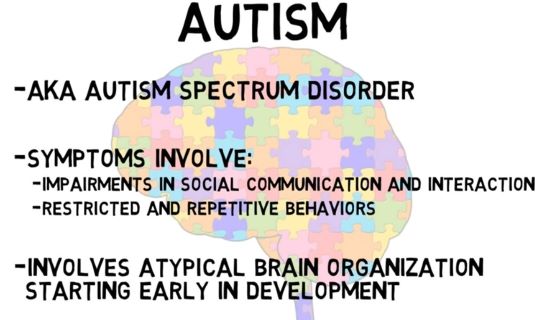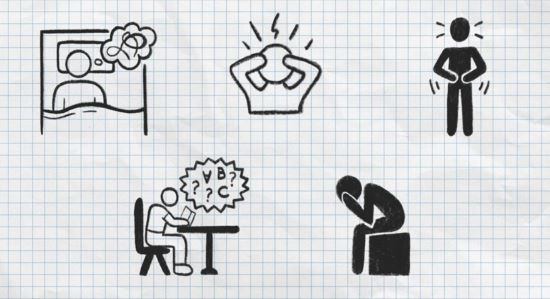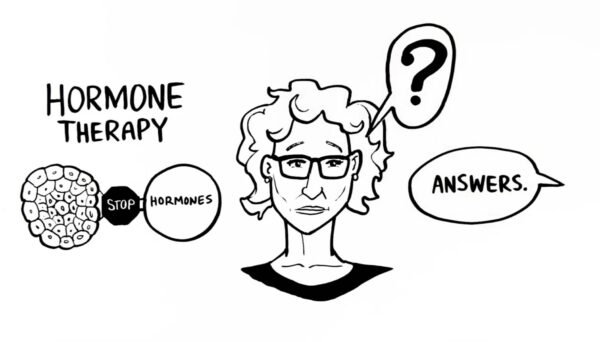Some peoples life could be more complicated and hard more than others because of genetic differences. With people who have autism syndrome and their caregivers, all special kids are in this situation. For guiding them and make their life easier we explain some tips and autism treatment/supporting methods. Also we talk about Autism Speaks Organization and discussions about autism speaks.

Autism, also known as autism spectrum disorder (ASD), is a neurodevelopmental disorder characterized by difficulty with social interaction, communication, and repetitive behaviors. Symptoms of autism can range from mild to severe and may include difficulty with social interactions, difficulty with verbal and nonverbal communication, repetitive behaviors, and limited interests or activities. Autism is a spectrum disorder, which means that the severity of symptoms can vary widely from person to person. Some people with autism may be able to live independently, while others may need ongoing support to participate in daily activities. The cause of autism is not fully understood, but it is believed to be a combination of genetic and environmental factors. There is no cure for autism, but early intervention and treatment can improve outcomes for individuals with the disorder.
Autism Symptoms
Autism is a spectrum disorder, which means that the severity of symptoms can vary widely among individuals. Some common symptoms of autism include:
- Difficulty with social interaction and communication
- Repetitive behaviors or routines
- Difficulty with language and understanding language
- Difficulty with social cues, such as eye contact and facial expressions
- Restricted interests or repetitive movements
- Sensory sensitivity
It’s important to note that every person with autism is unique and may experience different symptoms to varying degrees. If you are concerned that you or a loved one may have autism, it’s important to speak with a healthcare professional for a proper evaluation.
Autism Treatment
There is no one-size-fits-all treatment for autism, as each individual with autism is unique and may have different needs. The best treatment approach for a person with autism will depend on their specific symptoms and abilities. That being said, there are some treatments that have been found to be effective for many people with autism, including:
- Applied Behavior Analysis (ABA) therapy: ABA is a type of therapy that focuses on reinforcing positive behaviors and teaching new skills.
- Occupational therapy: Occupational therapy helps individuals with autism develop the skills they need to be as independent as possible in their daily lives.
- Speech and language therapy: Speech and language therapy can help individuals with autism improve their communication skills.
- Social skills training: Social skills training can help individuals with autism learn how to interact with others and develop friendships.
- Medications: In some cases, medications may be used to help manage specific symptoms of autism, such as anxiety or hyperactivity.
It’s important to work with a team of professionals, including doctors, therapists, and educators, to determine the best treatment approach for an individual with autism.
ABA Therapy For Autism
Applied Behavior Analysis (ABA) is a type of therapy that is often used to treat autism and other developmental disorders. ABA is based on the idea that positive reinforcement, or rewarding desirable behaviors, can be used to increase the frequency of those behaviors. ABA therapists use a variety of techniques, such as setting goals, providing feedback and reinforcement, and using data collection to track progress, to help individuals with autism learn new skills and reduce problem behaviors. Studies have shown that ABA can be an effective treatment for autism, and it is often used in combination with other therapies to help individuals with autism reach their full potential.
Tips for autism
Here general tips for supporting and caring for someone with autism:
- Educate yourself about autism: The more you understand about autism, the better equipped you will be to support the person with autism in your life.
- Be patient: People with autism may take longer to process information or respond to stimuli, so it’s important to be patient and give them the time they need.
- Use visual aids: Many people with autism find it helpful to use visual aids, such as pictures or diagrams, to help them understand information and communicate their needs.
- Establish a routine: Consistent routines can be very helpful for people with autism, as they can provide a sense of structure and predictability.
- Offer choices: Giving people with autism the opportunity to make choices, when appropriate, can help them feel more in control and empowered.
- Use clear and direct language: People with autism may have difficulty understanding figurative or abstract language, so it’s important to use clear and direct language when communicating with them.
- Be aware of sensory issues: Some people with autism may have heightened sensitivity to certain stimuli, such as loud noises or bright lights. It’s important to be mindful of these issues and try to minimize any potential triggers.
- Seek support: Caring for someone with autism can be challenging, so it’s important to make sure you have a support system in place for yourself as well. This could include family, friends, or professional resources.

There are a few things to consider when designing a home for a family member with autism:
- Create a safe and secure environment: It’s important to make sure the home is safe and free of potential hazards. This may include installing locks on doors and windows, covering outlets, and securing any potentially dangerous items.
- Establish routines: People with autism often benefit from predictable routines and a sense of structure. Consider designing the home to support these routines, such as by creating a designated area for activities like eating and doing homework.
- Use visual supports: Visual aids, such as schedules and social stories, can be helpful in communicating with someone with autism and supporting their understanding of the world around them. Consider incorporating visual supports into the design of the home, such as by using visual schedules and labels on doors and drawers.
- Provide a calm and quiet space: People with autism may benefit from having a quiet and calming space where they can retreat to when they need a break. This could be a room or a designated corner of a room with comfortable seating and sensory-friendly toys and activities.
- Make the home accessible: Consider the needs of the person with autism when designing the home, such as by installing handrails and removing any barriers to mobility.
All Discussion About Autism Speaks
What is autism speaks ?
Autism Speaks is an autism science and advocacy organization founded in 2005 by Bob Wright, Vice Chairman and Executive Officer of General Electric, and his wife Suzanne Wright. The organization’s stated mission is to “change the future for all who struggle with autism spectrum disorders.” Autism Speaks funds research into the causes, prevention, treatments and a cure for autism; increases awareness of autism spectrum disorders; and advocates for the needs of individuals with autism and their families. The organization also provides information and resources for families affected by autism.
One of the organization’s campaigns is called “Light it Up Blue,” which is an annual event that takes place during Autism Awareness Month in April. During this campaign, iconic landmarks, buildings, and other structures are lit up in blue to raise awareness about autism. The campaign also includes a variety of other events and activities, such as community walks, educational seminars, and fundraising efforts, all aimed at increasing understanding and support for individuals with autism and their families.

What is discussion about autism speaks ?
Autism Speaks has been a controversial organization within the autism community. Some people support the organization and appreciate its efforts to raise awareness and funds for autism research, while others criticize it for a number of reasons.
One criticism of Autism Speaks is that it has historically focused more on finding a cure for autism rather than supporting individuals with autism and their families. Some people in the autism community believe that seeking a cure for autism is not necessary or desirable, and that the organization’s emphasis on finding a cure perpetuates negative stereotypes about autism.
Another criticism of Autism Speaks is that it has not always adequately represented the diversity within the autism community, and has not always included the input and perspectives of autistic individuals in its decision-making processes. Some people in the autism community feel that the organization has not done enough to support and advocate for the rights of autistic individuals.
It’s up to you to decide whether you think Autism Speaks is a trustworthy organization. It’s important to do your own research and consider the perspectives of a variety of people within the autism community before making a decision.
The organization’s stated mission is to “change the future for all who struggle with autism spectrum disorders.” Some people in the autism community believe that seeking a cure for autism is not necessary or desirable, and that the organization’s emphasis on finding a cure perpetuates negative stereotypes about autism. However, others support the organization’s efforts to fund research into treatments and a potential cure for autism. It’s important to note that there is currently no known cure for autism, and research into treatments and potential therapies is ongoing.
Who works with autism speaks ?
Autism Speaks is an autism science and advocacy organization that works with a variety of companies and individuals to support its mission. Some of the companies that have partnered with Autism Speaks include:
- Johnson & Johnson
- eBay
- Toyota
- The Home Depot
- Verizon
In addition to partnerships with companies, Autism Speaks has also received support from a number of famous individuals, including:
- Bob Wright and Suzanne Wright, co-founders of Autism Speaks
- Katie Holmes, actress and spokesperson for Autism Speaks
- Julianne Moore, actress and spokesperson for Autism Speaks
- Dan Marino, former NFL quarterback and spokesperson for Autism Speaks
- Dan Aykroyd, actor and co-founder of the Blue Oyster Cult band, is a member of the organization’s board of directors.
This is just a small sampling of the many companies and individuals who have supported Autism Speaks over the years.

